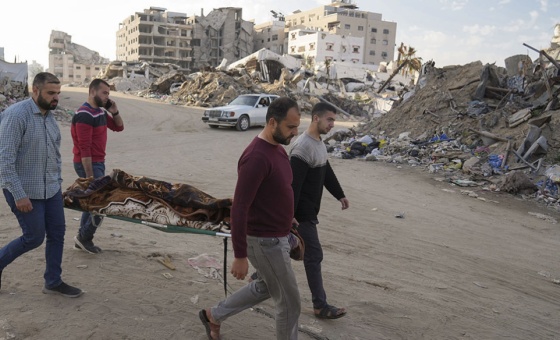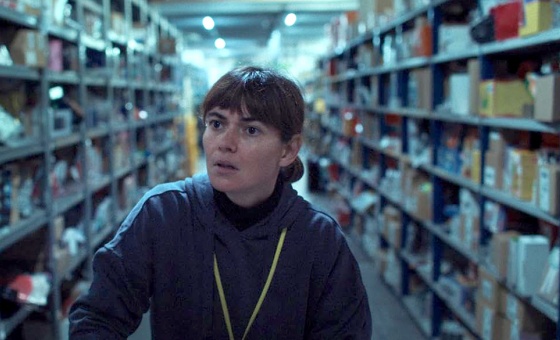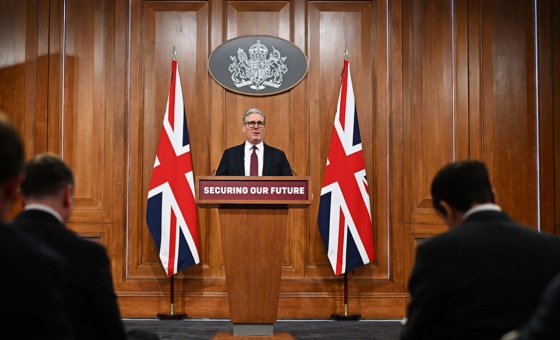This is the last article you can read this month
You can read more article this month
You can read more articles this month
Sorry your limit is up for this month
Reset on:
Please help support the Morning Star by subscribing here
ON A recent trip to Novorossiya, formerly eastern Ukraine, I was able to spend a day in Lugansk talking with communists there, as well as visiting positions of the Ghost Brigade — an organisation of anti-fascist revolutionaries now integrated with the regular armed forces of Novorossiya.
Dominant media narratives in Britain often frame the situation in Novorossiya in the language of Western liberalism — it’s a case of “European values” against “Russia’s puppets,” democracy versus corruption.
When Gadaffi was “bombing his people” in Libya, Britain responded with gusto. Now when Poroshenko does the same in Lugansk, our politicians are awkwardly silent.
Our perspective is skewed, and while the wider geopolitical conflict between Russia and Nato is very relevant, it’s inadequate without acknowledging the independent political tendencies within Novorossiya.
The initial mobilisation in Donbass against the Euromaidan coup two years ago opened up the revolutionary possibility of rebuilding a socialist society.
Legalistic demands for protection of the Russian language were accompanied by deeper structural calls to smash the power of the oligarchs.
Unfortunately as we can now see, the socialist ambitions were not fully realised, and major fissures still revolve around class politics today.
Class relations are also able to transcend the conflict.
One of the largest metal processing plants in Europe is located in Alchevsk, and it has remained curiously untouched by Ukrainian shelling. Despite the economic blockade of Novorossiya, Ukraine continues to receive rail cars full of coal and steel from there.
Alexey Markov, a commander in the Ghost Brigade, commented that the “Russian oligarchy will always deal with the Ukrainian oligarchy, we understand that they will never allow a people’s state in Donbass.”
Another commander, Piotr Biriukov, chimed in explaining that the war consumes huge amounts of resources, and the instability in Donbass is a very profitable opportunity for some sectors of the Ukrainian economy.
Many local people thought the conflict would be over in a few months, and although the ceasefire has dampened the cycle of violence, the war as a whole is far from finished. The reality is that a group of Ukrainian oligarchs are building their fortune off the back of this tragedy and they don’t want it to end.
The Ukrainian army is mostly composed of conscripts who didn’t sign up of their own volition.
They’re not the main enemy and Biriukov recognises that “if the Ukrainian army turns their rifles towards Kiev, we will be with them.” Markov gives a medical analogy: Ukraine suffers from the brown plague of fascism, and his task is to destroy the virus, not kill the patient.
In this respect the real threat comes from the National Guard and Right Sector, whose unshakeable political commitment to nazism means they can only be defeated militarily.
So what are the prospects for socialism in Novorossiya?
Markov is clear on this, first they have to deal with the external enemy — the junta — and after that they can deal with the internal enemy, the oligarchs.
The leader of the Lugansk communists, Maxim Chalenko agrees, pointing out that “the communists fighting for Novorossiya at the moment will be best placed to make reforms after the war is over.” They’re preparing for the good times when peace comes.
The people’s republics are young, and they need time to consolidate their administration.
This is necessary because in the absence of a robust state infrastructure, their territory could easily become a playground for gangsters and criminal elements.
During the soviet period the Ukrainian city of Odessa suffered badly from mafia activity, which was generously funded by the CIA. The communists in nearby Novorossiya have not forgotten the lesson.
However, this doesn’t mean the socialist project has been abandoned.
Even under difficult conditions there are small attempts to alleviate the hardships of war and poverty. Teacher Irina Shmatkova said that free breakfasts have been introduced in her school to stop children from going hungry.
Textbooks are also free to take home from the school library for pupils who can’t to get to school regularly.
In the areas close to the front the Ghost Brigade also provides services for those unable or unwilling to evacuate.
They distribute seeds for growing vegetables, they repair people’s houses, their medical station is open to the public, and they transport locals in their vehicles around villages where bus services have disappeared.
Lastly, the soldiers themselves recycle their salaries into the local market by buying milk and groceries at favourable prices. It’s a kind of informal social solidarity.
In urban areas the economic situation is no better. Some industries were completely dismantled, with machinery and specialists relocated to safer areas.
The effect of this was underlined by a fighter who goes by the name Nemo. “The shelling is bad, but most of the infrastructure here was not destroyed by bombs, it was destroyed by capitalists.”
Unemployment is becoming a problem, and in those conditions it’s hard to defend workers’ rights, let alone workers’ control of production.
Lugansk communist party secretary Ekaterina Popova noted that union activity which is too militant can be attacked by bosses as “pro-Ukrainian.” The speaker of the DPR People’s Council Vladimir Malkovich, was more positive, pointing to investments in new factories and food production. These are designed to meet the immediate material needs of the population, as well as creating jobs to alleviate unemployment. Also in Donetsk the gas, electricity and water utilities have been nationalised.
Above all this, the primacy of the anti-fascist struggle is crucial.
If the neonazi paramilitaries can be pushed back here, it will deter further incursions by US proxy forces across Europe, particularly in Moldova and Poland.
The Kiev regime, along with Erdogan’s government in Turkey, forms the backbone of a new reactionary axis, and their foreign policy is matched by extraordinary repression of progressive forces at home.
In Ukraine the Communist Party has been banned, and expressions of popular dissent are physically attacked by fascists with the tacit approval of police.
The defence of Novorossiya is not a defence of Putin, it’s the defence of human rights against global fascism and imperialism. It’s a fight which has a profound significance to people in Britain and elsewhere. Before leaving the base Markov turned to us: “Don’t write that we’re heroes here, we’re just normal people.”








